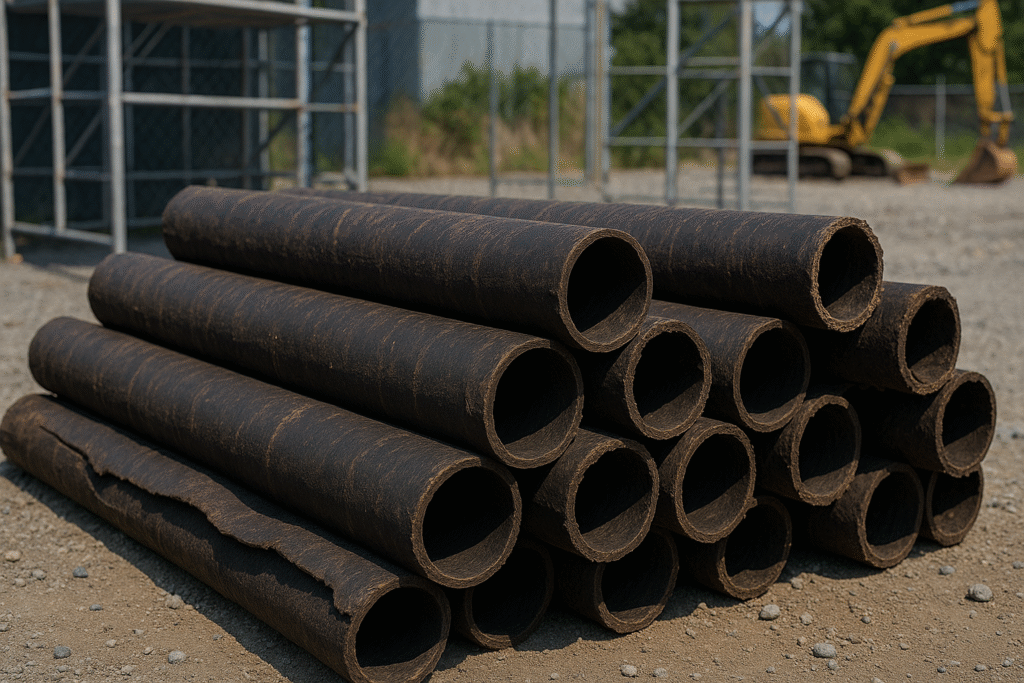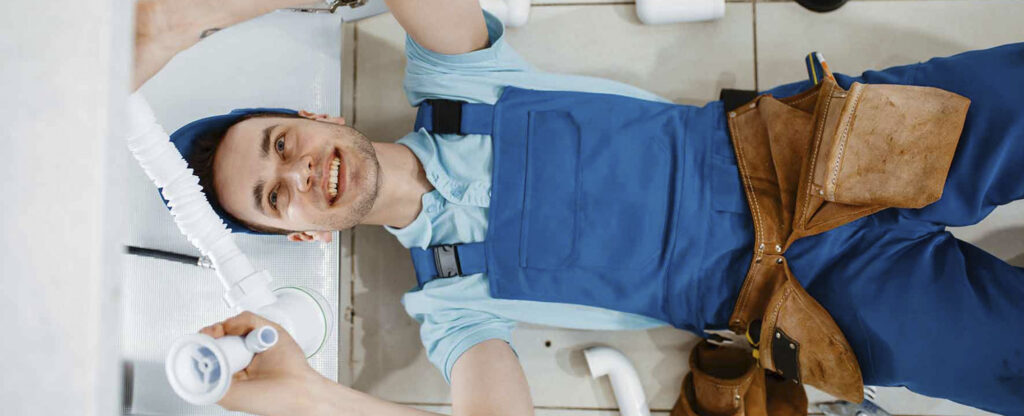The Wasatch Front’s Bituminized Pipe Maintenance Pro
Orangeburg pipes, also known as bituminous fiber pipes, were widely used between the 1940s and 1970s.
Made from compressed wood pulp and tar, they were a cheap, lightweight option for sewer systems. But over time, their short lifespan and fragile structure became a major problem.




What is an Orangeburg Pipe?
These pipes degrade quickly and collapse under pressure, leading to sewer backups, foul odors, and property damage. If your home was built before 1980, you may still have Orangeburg pipes underground—posing a hidden risk to your sewer and drains.
At Rhino Rooter, we specialize in identifying, inspecting, and replacing failing Orangeburg sewer lines. We use sewer camera inspections and offer trenchless technology to fix your system without tearing up your yard.
Frequently Asked Questions (FAQs)
Can Rhino Rooter Help with Sand Pipe Maintenance?
Yes! While Orangeburg pipes are more common, we also service older fiber conduit types like sand pipes. Our team handles thorough inspections, maintenance, and replacements to protect your sewer and drain system.
Has Lack of Strength Caused Pipes Made of Orangeburg to Fail More Frequently than Pipes Made of other Materials?
Absolutely. Orangeburg pipes lack the durability of cast iron or PVC, and often collapse after 30-50 years. Their non-oxygen barrier construction and use of wood pulp make them especially weak under pressure.
At Rhino Rooter, we are available for your call 24 hours a day. Our professionals are ready to diagnose and address your issue with the least intrusive solution possible.
EXCELLENTTrustindex verifies that the original source of the review is Google. Awesome service!!!! This plumber got the job done when others failed!!! HIGHLY RECOMMEND this company!Posted onTrustindex verifies that the original source of the review is Google. John was a pleasure to work with. Friendly and professional, I was impressed with how quickly and efficiently my sewer lines were patched up. Everything was left clean and ready to resume normal operation.Posted onTrustindex verifies that the original source of the review is Google. John came highly recommended and after working with him I have to do the same. A talented, clean, prompt professional at his trade. He cleared a clogged sewer line on a commercial property and installed a liner to fix the problem. Even when the project threw him a curve ball, he and his crew just calmly, completely changed gears from a liner to an excavation and did what needed to be done. All along the process he communicates the plan and schedule that made it easy to coordinate with our tenants. Thank you John and the Rhino Rooter team!Posted onTrustindex verifies that the original source of the review is Google. John is an honest, hard working, and very straighfoward guy. Does great work and offers sensible advice. Won't try to upsell you for things you don't need. He went above and beyond....tough to find guys like him. Very satisfied with his services.Posted onTrustindex verifies that the original source of the review is Google. John was so incredibly helpful and kind. I called him on recommendation from a friend while going through the inspection process on a home. He offered to look at the footage another plumber did, as well as scope the sewer line himself so we knew exactly what was wrong with the pipes. Turns out the sewer pipe needs to be completed replaced. John even did all of this without charging me. As a first time home buyer, the knowledge he shared with me was priceless. Thank you John for helping me learn what all would need to be fixed before I closed on this house!!Posted onTrustindex verifies that the original source of the review is Google. John Larsen was amazing cleaning my drain and communicating the problem to me highly recommend him.Posted onTrustindex verifies that the original source of the review is Google. John has been amazing to work with! From snaking my sewer line to eventually installing liner. Friendly and professional.... gets in and gets the work done. Highly recommend!Posted onTrustindex verifies that the original source of the review is Google. We called him to come check some piping thar was done a couple years back. He has always been amazing when we needed him.Posted onTrustindex verifies that the original source of the review is Google. They were very fair and got a clogged drain taken care of promptly for us. The prices felt very reasonable.Verified by TrustindexTrustindex verified badge is the Universal Symbol of Trust. Only the greatest companies can get the verified badge who has a review score above 4.5, based on customer reviews over the past 12 months. Read more



